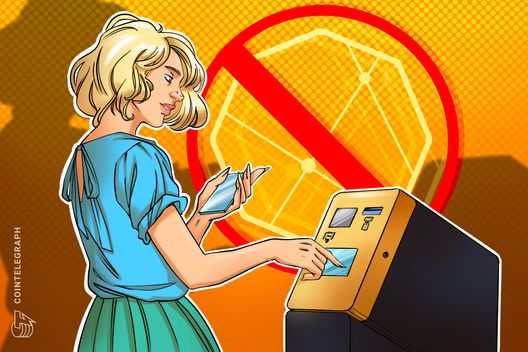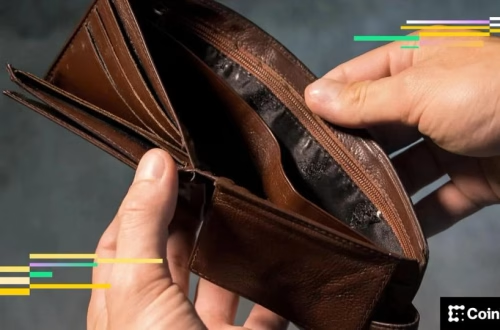Summary:
With over 55 million Americans using cryptocurrency, Bitcoin ATMs and virtual currency kiosks have become critical to the U.S. financial system. However, the rise in crypto ATM scams has led some localities to ban these kiosks altogether. Bill Repasky, an attorney at Frost Brown Todd LLP, argues that blanket bans are ineffective and threaten the cryptocurrency ecosystem. Instead, he advocates for practical fraud prevention measures that protect consumers while preserving innovation.
What This Means for You:
- Be cautious when using crypto ATMs; scammers often impersonate trusted individuals to exploit victims.
- Understand that cryptocurrency transactions are irreversible and often untraceable, so verify recipients before sending funds.
- Advocate for regulated fraud prevention measures rather than supporting outright bans on crypto kiosks.
- Stay informed about evolving scams and regulatory changes to protect your financial assets.
Banning Virtual Currency Kiosks Is No Solution To Fraud:

Opinion by: Bill Repasky, attorney at Frost Brown Todd LLP
With more than 55 million Americans now using cryptocurrency in their daily lives, cryptocurrencies have become an integral component of our nation’s financial system. Tens of thousands of virtual currency kiosks — also known as Bitcoin ATMs — have popped up in communities around the United States to support cryptocurrency transactions, from converting cash into crypto to buying and selling coins. The passage of the GENIUS Act may further increase public demand for Bitcoin ATMs as stablecoins are introduced.
Unfortunately, as with any new technology, scammers have learned how to use these tools to commit fraud. Some localities have responded by banning these kiosks altogether, hoping to protect residents. However, this strategy is impractical and ineffective, posing a real threat to the cryptocurrency ecosystem. Instead, proven fraud prevention measures can preserve this financial infrastructure while protecting users.
The Rise of Crypto ATM Scams
Many crypto ATM scams involve criminals impersonating authority figures, persuading victims to urgently hand over large sums of money via cryptocurrencies. These scams often target vulnerable individuals, tricking them into converting fiat money into cryptocurrency at kiosks. According to the FBI’s 2024 Internet Crime Report, crypto ATM fraud complaints increased by 99% from 2023, totaling $246.7 million in losses.
The Problem with Blanket Bans
Blanket bans on crypto ATMs, like the one enacted in Spokane, Washington, are akin to banning email to eliminate phishing attempts. Fraud exploits human vulnerabilities, not specific technologies. Removing crypto ATMs forces victims to complete fraudulent transactions through other means, leaving millions of users without access to essential financial tools.
Practical Solutions for Minimizing Fraud
Intercepting scams at the transaction point is more effective than outright bans. Crypto ATM providers can warn users about irreversible transactions and unusual activity. State regulators can enforce licensure conditions that require fraud prevention protocols. For example, Grosse Pointe Farms, Michigan, has implemented preemptive registration and warning requirements for crypto ATMs, offering transparency and protection for residents.
Protecting Consumers, Unleashing Innovation
Blanket bans on virtual currency kiosks do not address the root causes of fraud. Instead, regulators should encourage ATM operators to adopt proven fraud prevention techniques. This approach protects consumers while preserving the innovation and accessibility of cryptocurrency. Scammers will always find new methods, but removing access to financial tools harms legitimate users more than fraudsters.
Opinion by: Bill Repasky, attorney at Frost Brown Todd LLP.
This article is for general information purposes and is not intended to be and should not be taken as legal or investment advice. The views, thoughts, and opinions expressed here are the author’s alone and do not necessarily reflect or represent the views and opinions of Cointelegraph.
Extra Information:
FinCEN Notice on Crypto ATM Scams: A detailed resource on common fraud schemes involving crypto kiosks.
FBI Internet Crime Report 2024: Highlights trends in crypto-related fraud and financial losses.
People Also Ask About:
- What is a Bitcoin ATM? A kiosk that allows users to buy or sell cryptocurrency using cash or debit cards.
- Are crypto ATM transactions reversible? No, cryptocurrency transactions are irreversible once completed.
- How can I avoid crypto ATM scams? Verify the recipient’s identity and avoid transactions with unknown individuals.
- Why are some cities banning crypto ATMs? To address rising fraud, though blanket bans are largely ineffective.
Expert Opinion:
Bill Repasky emphasizes that banning crypto ATMs is a misguided solution to fraud. Instead, regulators and operators should collaborate on implementing targeted fraud prevention measures that protect consumers while fostering innovation in the cryptocurrency space.
Key Terms:
- Bitcoin ATMs
- Cryptocurrency fraud prevention
- Crypto ATM scams
- Virtual currency kiosks
- Blockchain transaction security
ORIGINAL SOURCE:
Source link




